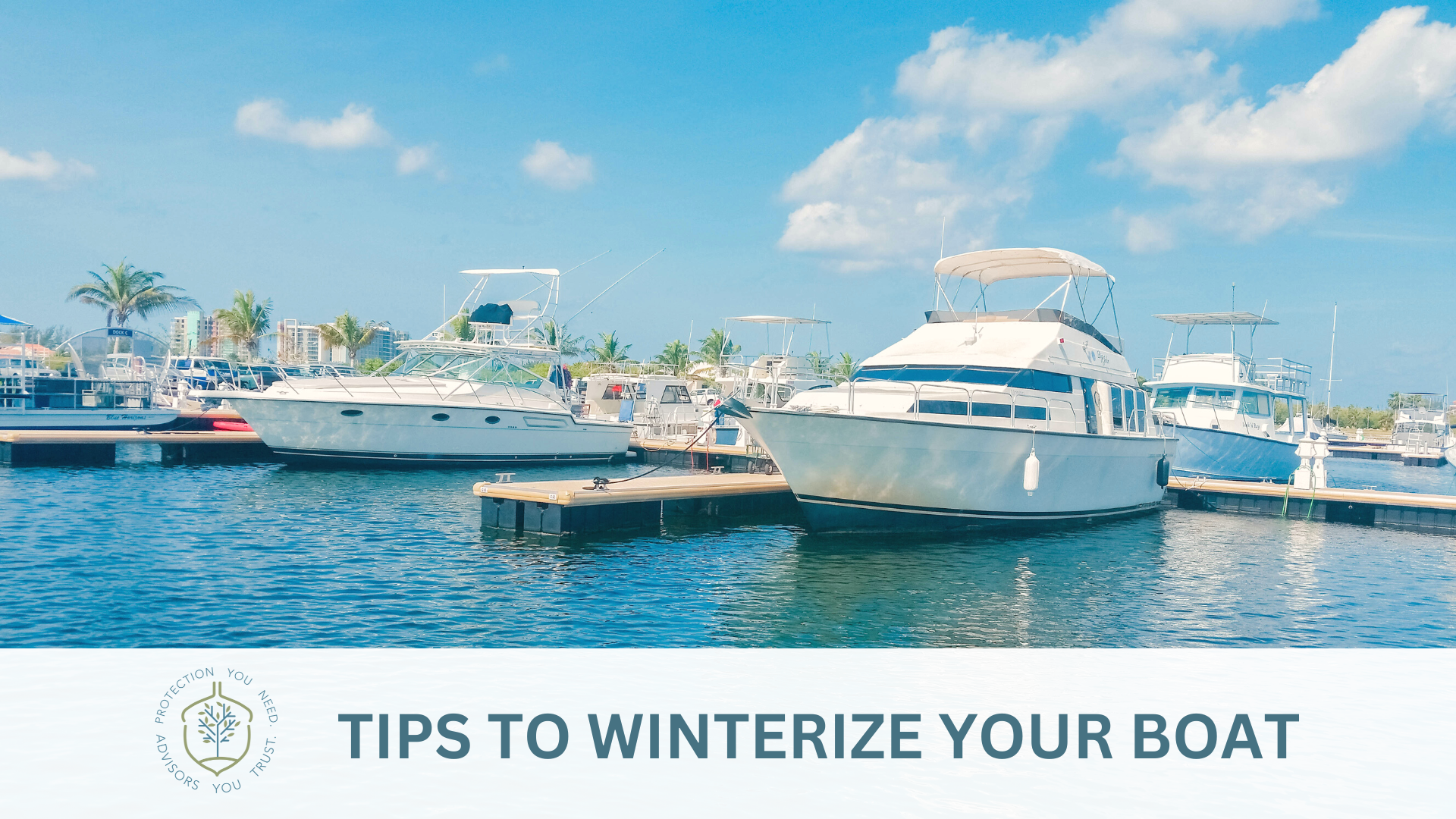It’s that time of year again when the colder weather starts to creep in, and we begin preparing for winter in Louisiana.
Boat owners will know well that the winter months can be a tricky time for keeping your vessel in good shape.
With a bit of planning and preparation before the winter months kick in, you will be able to enjoy the winter without worrying about unexpected repair bills in the springtime.
So whether you are a seasoned sailor or new to boating, we’ve put together some tips and advice on winterizing your boat for the cold months ahead.
What is winterization and why is it important for boats?
Winterization is the process of preparing a boat for the colder months. This involves preventative care and maintenance efforts such as draining all the water, changing the oil, and adding a stabilizer to the fuel tank.
Now you might question, it doesn’t get that cold in Louisiana during the winter, why should I winterize my boat?
Well, just like cars, boats can develop faults and damage especially mechanical parts such as engines when left for months without use.
The cold weather can cause the water inside the engine to freeze, causing cracks and serious water damage when thawed, which can easily ruin the engine.
Repairing your boat is expensive. Take for example, replacing the engine of your boat if it gets broken can cost you up to $35,000!
By winterizing your boat, you can avoid this costly mistake and take it out on the water in perfect condition in the coming spring.
6 Tips for winterizing your boat
Drain the water
The first and most important step is to drain all the water out of your boat before storing it. Excess water can cause a lot of damage to your boat when it freezes out.
It can expand in volume by 9% and push outward with a strong force which is enough to crack an engine block, dislodge fittings, and destroy fiberglass. In addition, the water can create mold and mildew.
So, before you put your boat away for the winter, be sure to drain all the water out of it. It’s a simple step that can go a long way in protecting your investment.
Change the oil and oil filter
Whether you have an outboard or inboard engine, we recommend changing the oil and oil filter before you put the boat away for the winter.
The old oil in your engine is likely to contain contaminants, such as dirt and water, and the longer it sits, it will become acidic. Changing it will ensure all the contaminants are cleaned out.
Disconnect the battery
Another step that’s often overlooked is disconnecting the boat’s battery. This may seem like a small detail, but it’s actually an important precaution to take.
When a boat battery is left connected and unused, it can drain over time and become damaged.
By disconnecting the battery, you can prevent it from being overly taxed and help extend its lifespan.
Make sure you fully charge the battery before storing it in a cool, dry place until the boating season starts again.
Fill up the gas tank and add a stabilizer to keep it from going bad
It’s best to have your boat’s fuel tank full and add a stabilizer to the fuel before you let the boat sits for a period of time.
Filling up the fuel tank will prevent condensation from developing and stop the gas from going bad.
Additionally, add a fuel stabilizer to keep the fuel in good condition. We recommend that you run the engine for a few minutes after adding a stabilizer so that it circulates in the fuel system.
Stabilizing your boat’s fuel may seem like a lot of work, but it’s well worth it in the long run to ensure your fuel system is well maintained.
Clean and wax your boat
Always wash and wax your boat before storing it for the winter. If you don’t, dirt and grime will build up and make it much harder to clean come spring.
The wax will also provide a protective layer on the boat’s finish, making it much easier to clean once you remove it from storage.
Cover your boat
Lastly, cover your boat with a boat cover or a fitted tarp. You may want to hire a professional for this task, but if you do it yourself, make sure you leave some room for air circulation.
Moisture can build up from the lack of air circulation, which can cause corrosion on the metal parts of your boat and also allow mold and mildew to grow.
Read also: Tips for First-time Boat Owners
By following the tips above, you can minimize the amount of work you have to do when spring rolls around and make sure your boat is ready for some fun on the water.
Remember, even if you take excellent care of your boat during the winter, you will still need watercraft insurance to protect it from accidents and other unforeseen events.
Contact TSL Insurance Group today for a free quote on comprehensive coverage for your vessel.
We pride ourselves in being the top insurance agency in Baton Rouge, Lafayette, Franklin, and Abbeville, LA, and we are here to help make sure that your boat is well taken care of – no matter what season it is!


Recent Comments